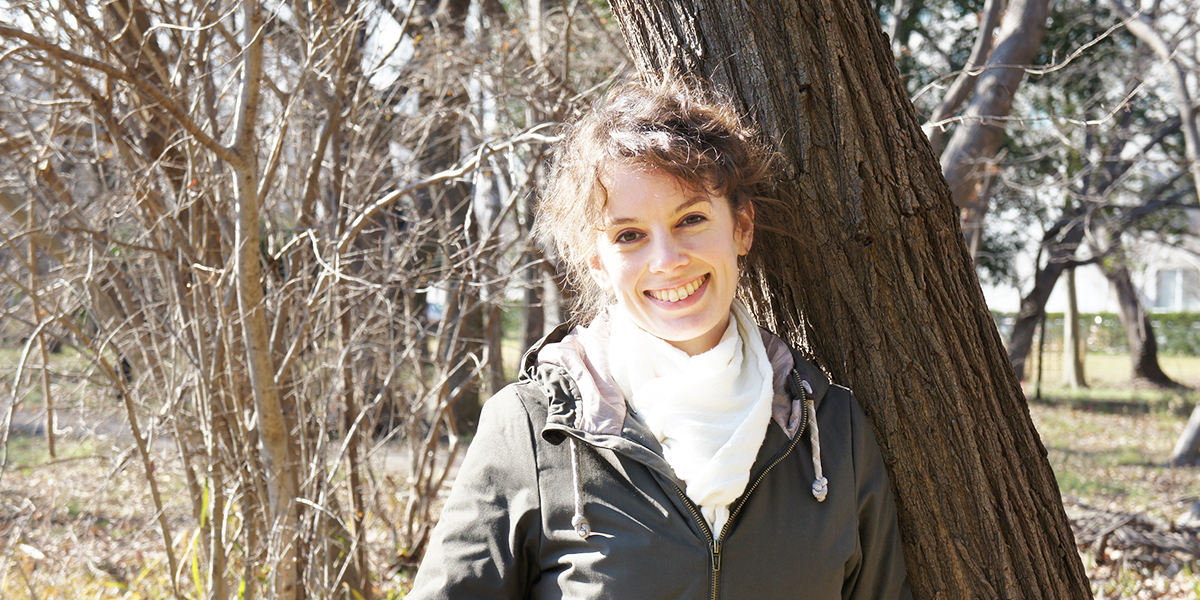
Working Hard and Playing Hard in Tokyo
-
- Daniela Hadasch
- Project Researcher, Institute for Cosmic Ray Research
Area of study: Astrophysics
Country/Region of Origin: Germany
A Sense of Adventure
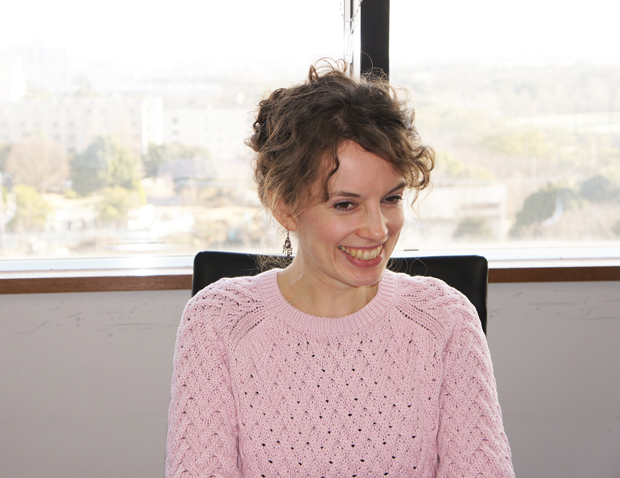
I first came to Japan for an international conference when I was a PhD student in astrophysics in Barcelona, Spain. Japan seemed like a nice place at the time; little did I know I would be working here just a few years later!
An opportunity to work somewhere different
After earning my PhD and doing one year of postdoctoral research in Austria, I wanted to conduct research somewhere different and exciting. An opportunity to work at UTokyo's Institute for Cosmic Ray Research (ICRR) in Japan came up.
I found out about the position from Professor Masahiro Teshima, who researches here at the ICRR and is in charge of telescopes I conducted research with when I was getting my PhD. He invited me to apply, and I gave it a lot of thought. I was satisfied with my job in Austria, and my family was concerned about me moving all the way to Japan. However, the thought of working in Japan seemed like an adventure to me and something that I should try doing while I'm young and still have the chance. I decided to apply, and I feel very lucky to have gotten the job. After being here for one and a half years, I can say that working in an environment so culturally and linguistically different from Europe has definitely been an adventure!
Everyone at the ICRR has been very supportive
When I first arrived in Japan, I was amazed at how everything here is very clean and how people are quiet on the trains. I was also impressed with the ICRR's nice facilities for students and staff, and how the Institute is so well-organized.
I had no difficulties at all when joining the ICRR. My colleagues have been and still are very supportive in helping me adjust to things here. Also, one of the secretaries at the ICRR was immensely helpful as she accompanied me to the bank to open an account and found an apartment for me. I think she's the best secretary in the world!
Observing Energy Emissions from Massive Objects in Our Galaxy
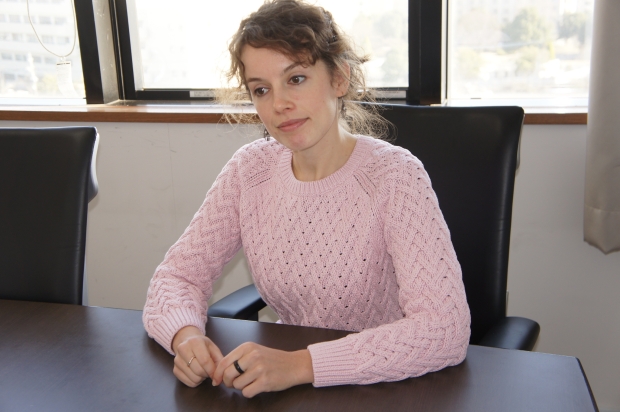
My research focuses on binary systems—pairs of objects in space which orbit around each other. These systems generally consist of an ordinary star and some other massive object, which may be a black hole or a neutron star. The massive object in interplay with the star releases radiation, and I am researching how this radiation is produced and the identities of the massive objects that are emitting it. This research may eventually help answer fundamental questions about how and why the universe was formed.
Working at the ICRR
At the ICRR, researchers are given a high degree of freedom. I can do physics research and data interpretation while also conducting experiments firsthand and networking with other researchers, for example. There are a lot of people in Japan who are active in my research field, and I get to meet them at seminars and domestic conferences. Some of these encounters with others lead to cross-disciplinary collaborations; as an example, I am currently working on a research project with someone from UTokyo's Kavli Institute for the Physics and Mathematics of the Universe, which is right next door to the ICRR.
Another appealing aspect of the ICRR is that it offers me the opportunity to combine theoretical and practical physics—to connect what's written in textbooks and research papers with hands-on experience. For instance, I get to regularly visit La Palma, Spain to help construct new telescopes and retrieve data from existing ones there as part of my research.
My group at the ICRR is a major player in a new international project to build the next generation of telescopes for studying the universe at the highest gamma-ray energies: CTA. It is a unique opportunity for me to be a part of this collaboration and take the responsibility to develop hardware for parts of the telescope cameras. The work is exciting and I am very proud to be actively participating in this project and really looking forward to exploring physics once the telescopes start working in only a few years from now.
I get along really well with my research colleagues, too. We go to lunch together and sometimes get together after work to socialize. I like how we do things as a group.
Scientific outreach and the Nobel Prize effect
I believe that one of the jobs of a researcher is to explain their research to society, and the Open Campus event here on the Kashiwa Campus gives us researchers an excellent opportunity to do so. People are very interested in my research and ask a lot of good questions when they come. In fact, many more people than usual attended the Open Campus event last year because the director of our Institute, Professor Takaaki Kajita, won the Nobel Prize in Physics! Since then, the Institute has become famous worldwide, and more people have shown enthusiasm for the research we conduct here. I think it's all super exciting and I feel quite lucky that I happened to be working at the Institute when he was awarded the Nobel Prize!
Learning about Myself and Facing New Challenges
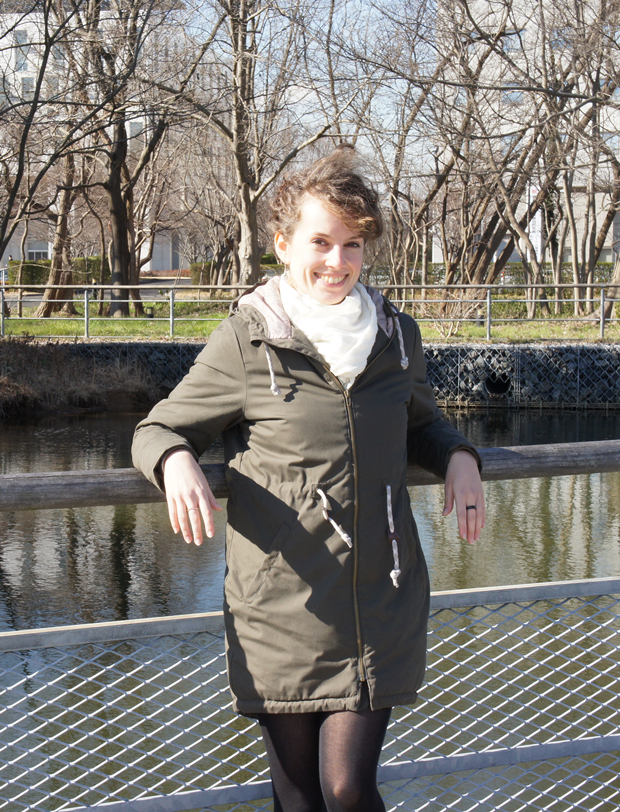
Before I came to Japan, I had heard that Japanese people are shy. In my experience, nothing could be further from the truth! People talk to me all the time and I feel very welcome here. Also, I've gotten used to living here now, but in the beginning even buying things at the supermarket was difficult. Websites with how-to videos and basic information about daily life in Japan were my best friends at that time!
I feel that I have become more tolerant and open-minded of other people and cultures since coming to Japan. I'm more curious now about why people with different cultural backgrounds from myself act the way they do, and observing these characteristics also helps me to learn more about my own cultural behaviors.
Living like a Japanese person
I live in a traditional shitamachi area in central Tokyo. It's quiet, but very well-connected to the main hubs of Tokyo. I feel like I can live like a Japanese person there rather than residing in a foreign niche. I have also traveled a lot in Japan. I really like Nagasaki and how it is so different from Tokyo. Hokkaido is really great, too—it's so green and wonderful in summer, and it's where I spent my holidays last year. I also like going to onsen and staying sometimes at ryokan. And, of course, the beaches when the weather in summer allows!
Future plans
It's difficult for researchers in science fields to make long-term career plans, because so many things are subject to changing. I am always looking for a permanent position as a researcher or professor after my contract ends in the next couple of years, though. If I can find a position like that in Japan, it would be great!
You aren't Alone Here
I would like to give some advice to people who are considering studying or researching in Japan. Before coming to Japan, it's good to know some basic Japanese. Try to learn and be curious about everything. Don't read too many books about Japan beforehand; just come and see Japan for yourself with an open mind. Also, don't be afraid to make mistakes! Japanese people are very understanding, and it's OK to ask people for help when you don't know something. You aren't alone here.
Women in research need more support
For female researchers in particular, I think it's important to have self-confidence. It's also vital for them to network with other female researchers, especially if they are working in fields where there are not many women. Girls should be given many opportunities early on to learn about the excitement that a research career in science can bring, and they need more support from all parts of society.
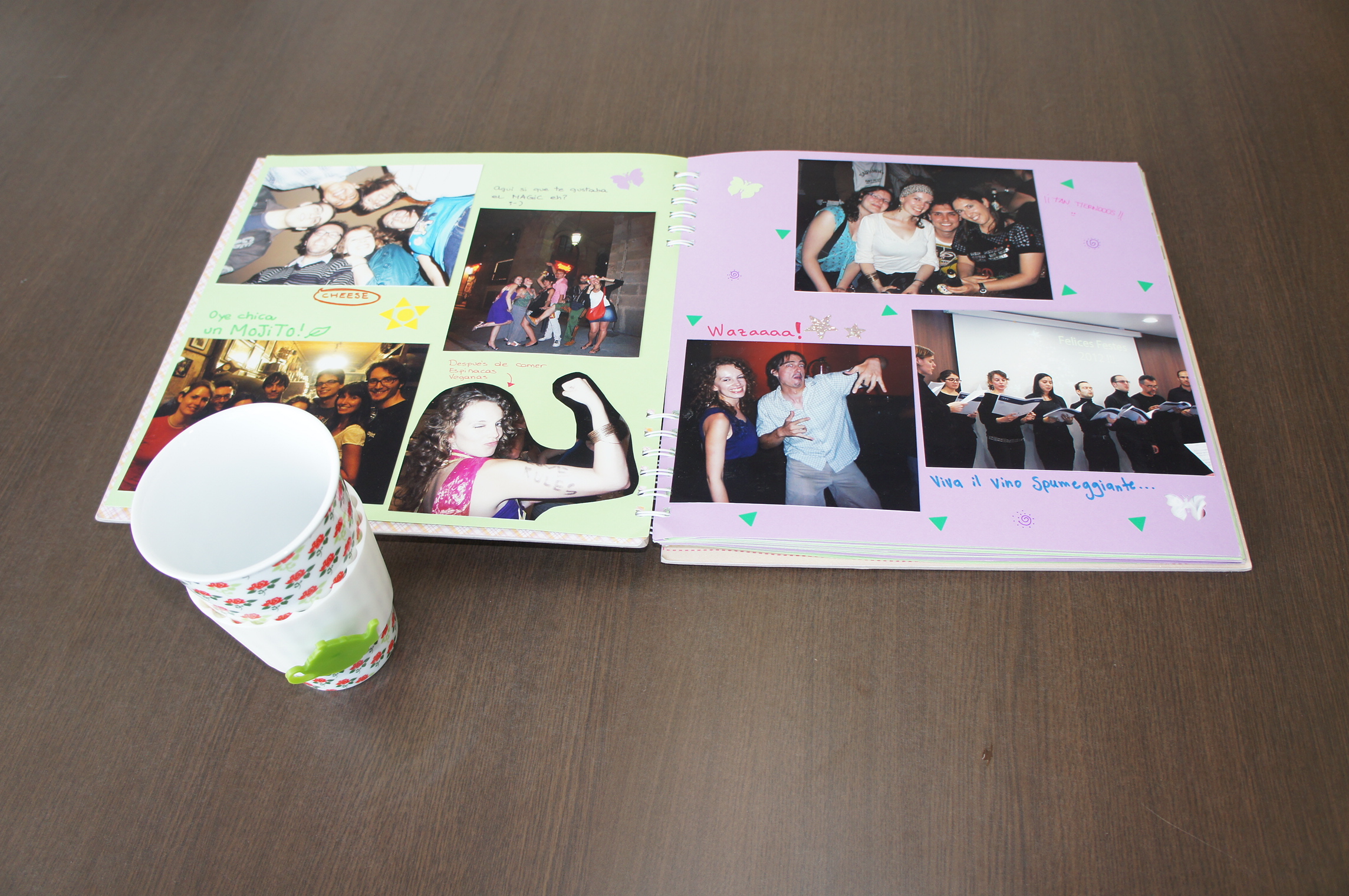
Treasures from Her Beloved Friends
A photo album and a mug
Daniela brought us a photo album and a mug that were presents from her friends. She says that the album was created by the people she met and became friends with when she was a doctoral student at the Autonomous University of Barcelona (UAB). The album is full of funny comments and pictures. She lived in Barcelona for five years and made a lot of happy memories with her Spanish coworkers. The mug with the pretty flower pattern was a gift from her best friend in Germany whom she has known since kindergarten. Daniela loves this mug and it has accompanied her first to Spain, then Austria where she worked as a post-doc researcher for a year after graduating from UAB, and now Japan. Drinking coffee or tea with this mug is part of her daily routine. She says that the mug sometimes makes her think of her friend. Both items show that Daniela cares about her friends very much!
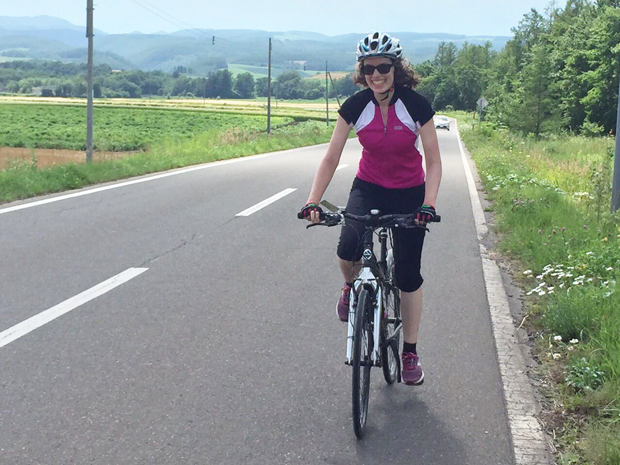
Playing Hard Every Weekend
From Latin dancing in the city to mountain climbing in the country
Daniela says that she loves exercising and enjoys dancing most weekends. Her favorite dance style is Latin, and she likes the salsa and bachata in particular. She is a member of a bachata dance group in Tokyo. She takes dance lessons almost every weekend and sometimes gives performances with the other bachata dance group members. Daniela is also a member of a hiking club and enjoys climbing mountains. She says that there are many nice places full of nature in the Tokyo suburbs. Other outdoorsy activities she enjoys on the weekends include running alongside the Sumida River, cycling, going to the beach in the summer and skiing in the winter. As researchers like her often have to do a lot of deskwork during the week, Daniela says she wants to use her free time on the weekends to let herself loose and get some exercise!





